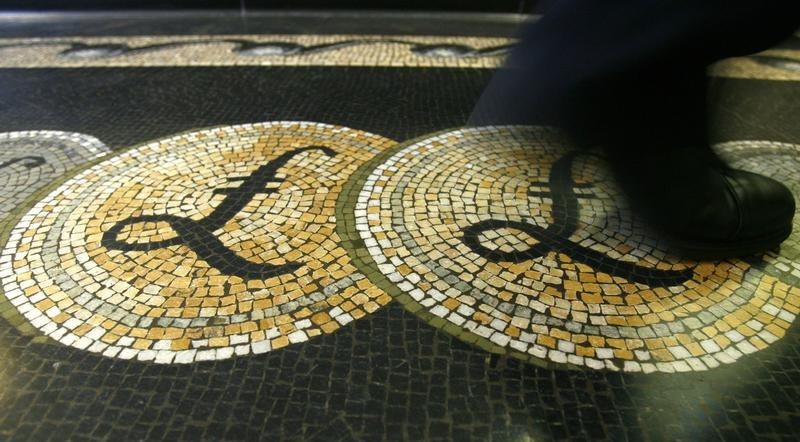Investing.com - The pound edged lower against the dollar on Thursday after data showed that the rate of economic growth in the U.K. in the first three months of the year was unchanged from initial estimates.
GBP/USD eased to 1.5330 from around 1.5362 ahead of the data.
The Office for National Statistics second estimate of gross domestic product confirmed growth of 0.3% % in the first quarter, unchanged from the initial estimate and below expectations for a reading of 0.4%.
On a year-over-year basis, GDP expanded 2.4%, also in line with the first estimate.
Growth in the industrial sector was revised up to 0.1% from an initial estimate of a 0.1% contraction. A contraction in the construction sector was revised to 1.1% from 1.6%.
But growth in the dominant U.K. services sector was revised down to 0.4% from 0.5%.
The data also showed Britain’s current account deficit was a drag on the economy, shaving 0.9% of GDP growth in the last quarter due to surging imports.
Demand for the dollar continued to be underpinned by expectations that the economic recovery in the U.S. would accelerate the timeline for higher interest rates.
Economic data released in the past week, including reports on inflation, new home sales, business investment and consumer confidence all indicated that the economy is gaining momentum after a slowdown in the first quarter.
The U.S. was to release data on initial jobless claims later in the day.
Meanwhile, sterling was weaker against the euro, with EUR/GBP up 0.41% to 0.7130.
The euro’s gains were likely to be held in check as concerns over the prospects of a Greek default continued to weigh on market sentiment.
The Greek government said Wednesday it had started drafting an agreement with its international creditors, signaling progress in long-running negotiations to unlock more financial aid.
However, European officials played down suggestions of a deal, saying negotiators still had much work to do before reaching an agreement.
In its latest financial stability review published on Thursday, the European Central Bank warned that default risk expectations have “increased sharply in Greece” amid heightened political uncertainty.
